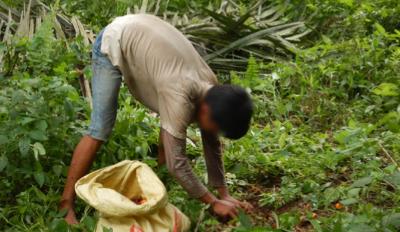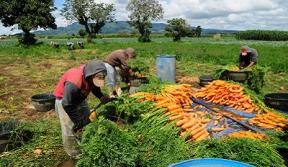
Publication Date:
Source:
In August of 2016, Amnesty International released a detailed report exposing egregious labor violations—including forced labor, child labor, exposure to toxic pesticides, and failure to pay minimum wages—on plantations owned by palm oil giant Wilmar, a supplier to major global brands, including Unilever, ColgatePalmolive, Kellogg’s, Nestle, and Procter & Gamble. Incredibly, three of the five plantations where the abuses were documented were certified as “sustainable” palm oil producers by the industry certification scheme, the Roundtable on Sustainable Palm Oil (RSPO).
Global demand for palm oil has skyrocketed over the last decade and is estimated to double by 2030 and triple by 2050. Long popular as a cooking oil in Asia, it has become the world’s most consumed edible oil and is present in nearly half the products on our supermarket shelves, from soap to cosmetics, personal care products, along with chocolate, breakfast cereals, ramen noodles, margarine, and even McDonald’s French fries.
While most of the world’s palm oil comes from Indonesia and Malaysia, which account for 85 percent of global production, it is rapidly expanding in Latin America and West Africa. According to a recent report from Oxfam, global production is expected to double by 2050, increasing the land area under cultivation worldwide by sixty million acres, or roughly the size of Michigan.
Over the past few decades, the rapid expansion of palm plantations across Indonesia and Malaysia has repeatedly been linked to unsustainable production practices, including the destruction of rainforests, endangered species’ habitat, and loss of communally held land by indigenous peoples. As a result of nongovernmental organization (NGO) campaigns against these practices, many U.S. and E.U. companies have committed to sourcing palm oil only from “sustainable” suppliers that pledge to respect the environment and human rights. By contrast, comparatively little attention has been
paid to labor rights, despite the fact that rampant labor abuses, including poverty wages, child labor, exposure to toxic pesticides, and even forced labor and human trafficking, are commonplace across the industry.


